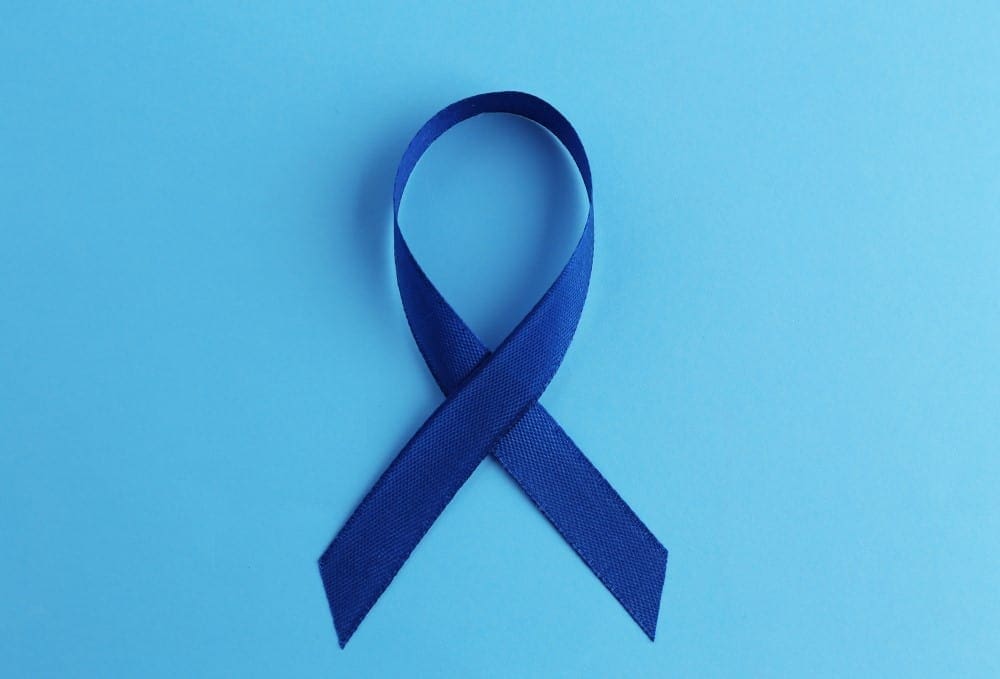
Colorectal cancer, which starts in the colon or rectum, is the third most common cancer in the U.S. and the third-leading cause of cancer-related deaths for both men and women. While a diagnosis of colorectal cancer can be overwhelming, understanding the risks, prevention strategies, and early detection methods can make a significant difference in outcomes.
Download the Fact Sheet
What Causes Colorectal Cancer?
Most colorectal cancers begin as small growths called polyps on the lining of the colon or rectum. Not all polyps turn cancerous but removing them during screenings can significantly reduce the risk. Regular screenings are a great way to catch these early growths and remove them before they turn into something more serious.
Risk Factors
More than half of colorectal cancers are linked to modifiable risk factors, meaning changes to your lifestyle can lower your risk. By understanding both the factors you can control and those you can’t, you’ll be in a better position to take charge of your health.
Modifiable risk factors are within your control and can affect your risk of colorectal cancer:
- Excess body weight
- De fumar
- La inactividad física
- High consumption of red or processed meats
- Alcohol consumption
Non-modifiable risk factors are beyond your control, but it’s still important to be aware of them:
- Age (especially over 45)
- Family or personal history of colorectal cancer or polyps
- Hereditary conditions (like Lynch syndrome)
- Chronic conditions such as type 2 diabetes or inflammatory bowel disease
- Ethnicity: Some groups, including African Americans and people of Ashkenazi Jewish descent, are at higher risk.
Even though you can’t change some of these factors, it’s still a good idea to discuss your overall risk with your healthcare provider, especially if you have any of these non-modifiable factors.
Signs and Symptoms
In the early stages, colorectal cancer might not show any symptoms. But there are warning signs to look out for, such as:
- Bleeding from the rectum
- Blood in your stool
- Changes in bowel habits or stool shape
- Stomach cramping or pain
- Unexplained weight loss or weakness
- If you notice any of these symptoms, it’s important to talk to your healthcare provider as soon as possible.
Prevention and Screening
While not all colorectal cancers can be prevented, there are steps you can take to lower your risk and catch potential issues early:
- Regular Screenings: Colonoscopies and other screenings are key to detecting colorectal cancer early—sometimes before you even have symptoms. The American Cancer Society recommends starting screenings at age 45 for those at average risk, but those at higher risk may need to start earlier.
- Healthy Lifestyle Choices: Maintaining a healthy weight, staying active, and eating a diet rich in fruits, vegetables, and whole grains can reduce your risk.
- Limit Harmful Habits: Avoid smoking, limit alcohol consumption, and reduce processed and red meat intake.
Treatment
Treatment for colorectal cancer depends on the cancer’s stage, location, and your overall health. It’s important to discuss all treatment options with your healthcare provider to determine the best plan for you.
Act Today: Early Detection Saves Lives
Early detection is one of the best tools we have to fight colorectal cancer. By scheduling a screening, you’re taking an important step toward protecting your health. Screening can help catch the disease early, which increases the chances of successful treatment and better outcomes.
La mayoría de los proveedores de seguros cubren las colonoscopias para personas de 45 años o más. Para programar una colonoscopia, visite wmmc.com/colonoscopia o llame al 660-747-5558.
Additional Sources: El Dr. Jason Snowden habla sobre la prevención y detección del cáncer de colon en WMMC
